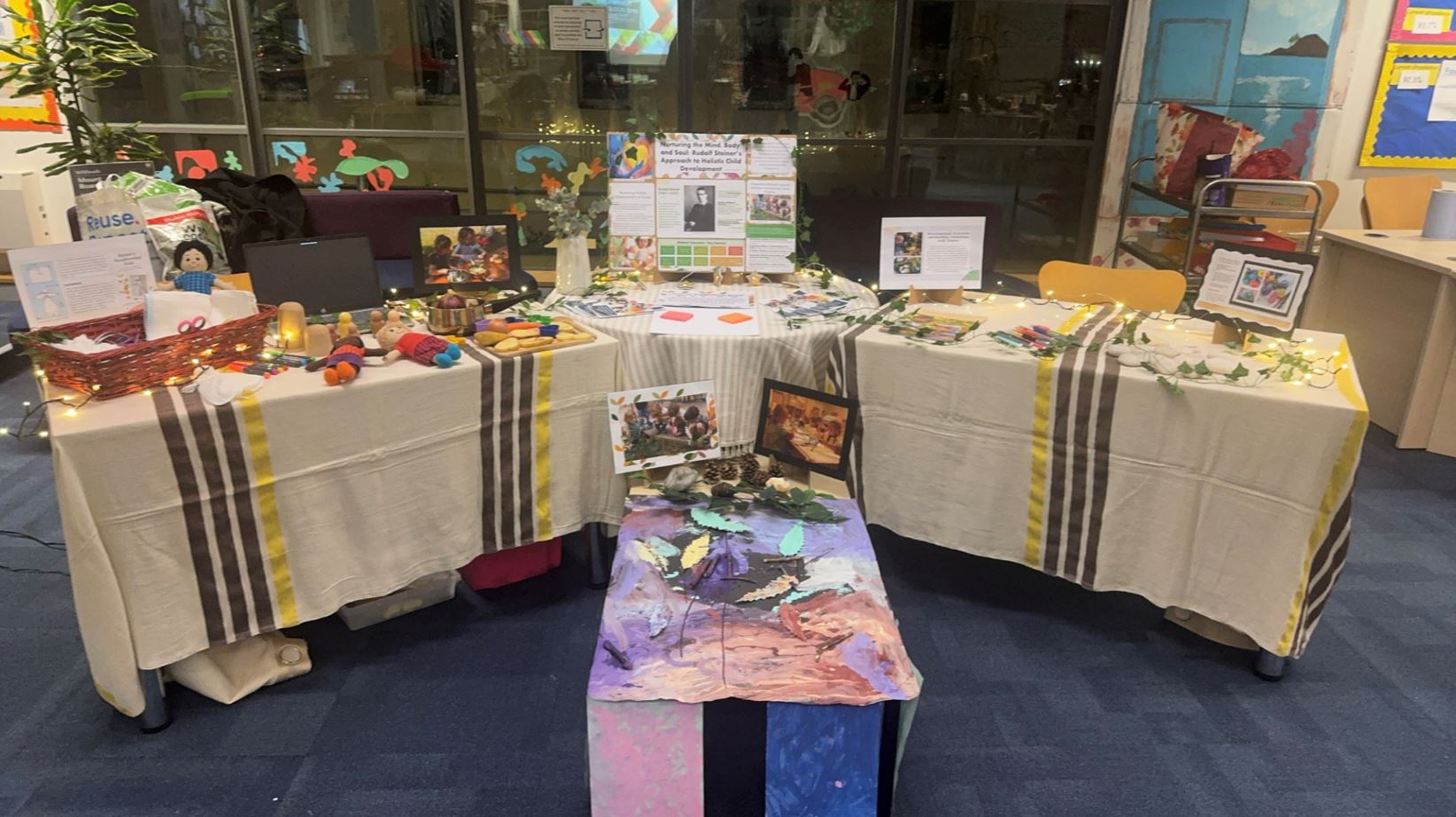Foundation Degree (FdA) Early Years students at Kingston College held a wonderful and inspiring exhibition of Early Childhood Pioneers, with visitors including Level 2, 3 and 4 learners on Early Years courses, external partners and practitioners, and family and friends who chatted to the students about the importance the project has had on their learning.
Early Years Lecturer, Zara Siddiq, enthused: “From being a student planning my own exhibitions to now planning one with my students has been such a surreal and rewarding journey. They worked tirelessly to create the most incredible display for the big day!
The turnout was fantastic, and we were so happy to have students from all levels—Level 2, Level 3, and Level 4—attending. It was inspiring for them to see what a higher education program looks like and to ignite an interest in potentially pursuing such a program in the future. We were also thrilled to have many members of the College attend, giving them a chance to experience first-hand how vital early years education is and the impact it has on children's lives. The support and enthusiasm was truly overwhelming, and it was wonderful to see the recognition of the importance of this field across all levels of the college.”
The Early Childhood Pioneers exhibition explored a range of educational approaches and theories, each of which has made a significant impact on early years education:
- Reggio Emilia: This approach, founded in the aftermath of World War II, emphasises the importance of the learning environment as the 'third teacher.' It highlights how thoughtfully designed spaces can inspire creativity, collaboration, and exploration. A key focus was on addressing poverty and ensuring that education is accessible, inclusive, and empowering for all children.
- Friedrich Froebel: Often referred to as the "father of kindergarten," Froebel's philosophy centres on the critical role of play in a child's learning and development. He believed in hands-on, experiential learning, where children engage with materials and activities that stimulate curiosity, creativity, and critical thinking.
- Rudolf Steiner: The Waldorf approach developed by Steiner prioritizes imagination, creativity, and holistic development. It views education as a journey that nurtures the head, heart, and hands, fostering emotional well-being, intellectual growth, and practical skills in a way that respects the rhythms of childhood.
- Forest School: This philosophy highlights the power of outdoor learning, where children develop resilience, confidence, and a deep connection to the natural world. Through exploration and risk-taking in a natural environment, children cultivate independence, problem-solving skills, and a sense of responsibility for their surroundings.


